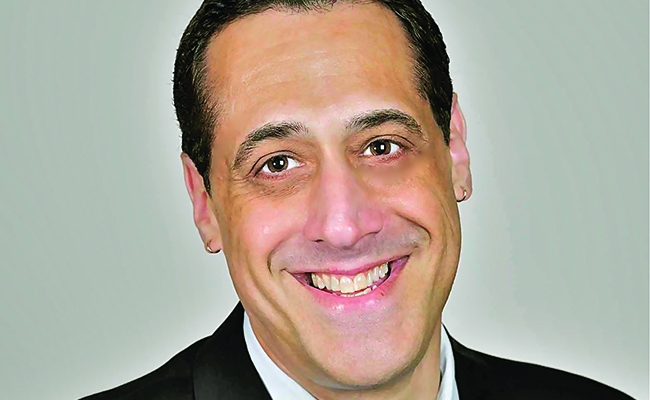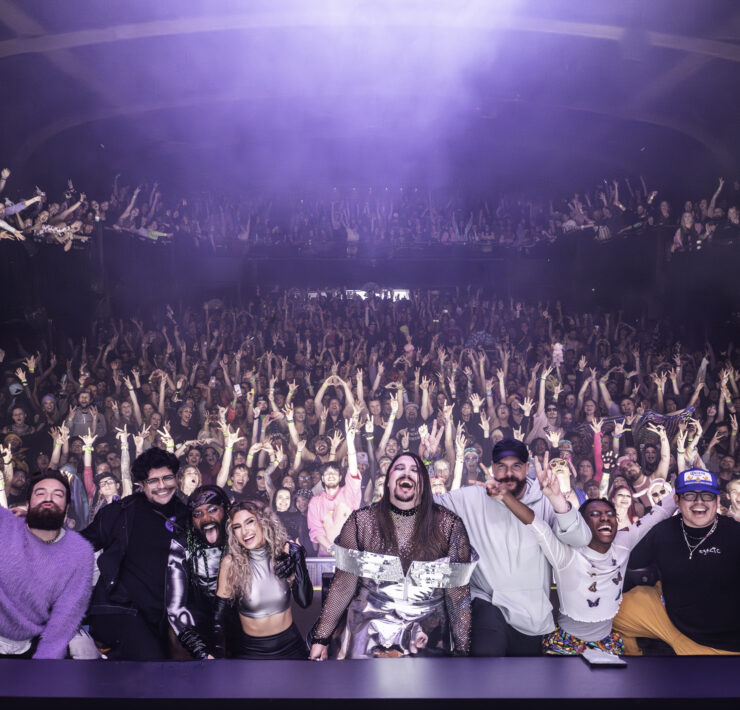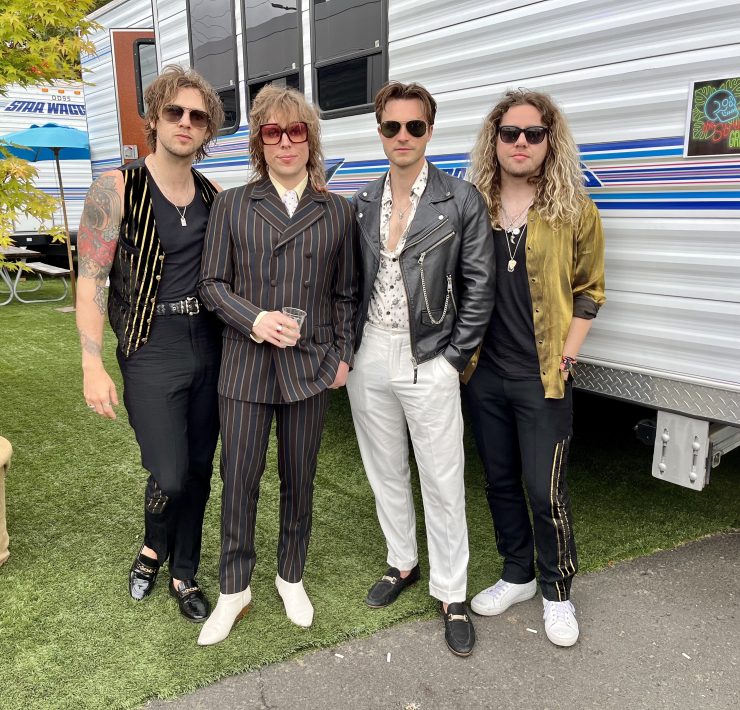Stuart Milk, nephew of Harvey Milk: ‘There is no non-important role’

I met Stuart Milk — nephew of iconic gay civil rights leader Harvey Milk — at the Gay and Lesbian Victory Fund conference in Denver where he’d just finished an inspiring speech. Stuart Milk is a global LGBT human rights activist and co-founder of the Harvey Milk Foundation, carrying on his uncle’s legacy, not just in name but in his personal message as well.
He agreed to an interview, where he spoke about being inspired by young people, and how change is not driven by just a few inspiring leaders but — as Harvey Milk himself believed — by everyone being included and working from the ground up.
What are some of the successes you have seen and some of the areas for improvement around the world?
This has been an amazing five years…not only successes here in the U.S. but in Argentina and Spain and many places where we have now movement toward full equality…because young people demanded marriage.
The older activists, like myself, were stuck on, We haven’t passed employment nondiscrimination, which my uncle was fighting for 35 years ago, and we haven’t passed discrimination in housing. It’s still legal in the majority of states to fire someone or deny someone housing simply because they’re gay. And we have some states like New Hampshire where you could get married and put your same-sex partner’s picture on your desk, and the employer can come in and say, “Did you marry your same-sex partner? Oh that’s nice, but you’re fired.” And that’s legal.
What (focusing on marriage instead) did was put the bar high enough that it went right to the core of the issue that (LGBT equality) is a celebration, not something to be ‘tolerated.’ One of the things that the Milk Foundation doesn’t do is talk about ‘tolerance.’ Young people demanded marriage equality, which is a celebration, and it means understanding and full participation. It doesn’t mean ‘tolerating’ something that you don’t like.
Unfortunately, the majority of the world’s population today, almost two thirds, live in a country where it’s either illegal or where societal non-acceptance is beyond high. We may feel that we’ve moved really ahead but globally we haven’t. We have a lot of work to do.
What are some of the initiatives your organization is focused on?
We don’t do much domestically other than Harvey Milk Day and building collaborations and coalitions on that day…where you bring everyone together and celebrate the diversity of the community. In terms of core work, it’s really education. Globally, we go usually where no one else will go. We’re usually the call that someone makes after they’ve gotten two or three no’s from other organizations and we don’t say no. We usually go when other people can’t.
What can an individual person do to make a difference in her or his community?
The most important thing, which is my uncle’s message, is to allow authenticity. This is at the family level, so if you know someone who is struggling that is different, whether they’re LGBT or believe in a different religious philosophy or want to go into animal rights — whatever their passion and purpose is in their life, it’s about supporting them. And then to take that to the community level and to the company level to the corporate community and then taking that further into just being out.
LGBT people…have the option of denying who they are. I’ll be on plane rides and people will say — even if they know who I am and who I represent — they won’t make the connection that Harvey could have a gay nephew. They’ll say, “What does your wife do?” And there’s a split second that we all have (to ask ourselves): “is it easier just to ignore the question or not answer it?” Or do you say, “I’m no longer with my husband.” Do you say something or do you let it go? The key is not letting it go — not putting on that mask even for a second. That is really the thing that changes the world.
Your uncle inspired generations of LGBT people. Who inspires you today and when do you think we’ll find that next transformational leader in LGBT culture?
I’m inspired by young people, but there are some people that are older that I meet around the world. There are dozens of people who face situations worse than my uncle and have this tremendous courage. I may go in and talk about being egged in Lithuania and have urine in the middle of the East thrown on me, and there are times that the State Department or the Embassy will say there is a security threat here. I’m not afraid or bothered by any of that. But to me, there’s no courage in me going in and spending a week a year in a place. The courage is the people who live there every day, who live in a place where there is brutal oppression and they refuse to put on a mask. They are out and they are open. Unfortunately, now I’m going to tear up, I also know dozens of people who are no longer alive that I’ve had the pleasure and honor of working with who through their own activism are gone. These are amazing people, they are the ones who inspire me. It’s not one person, it’s a collective. I see them as the Harvey Milks of these different countries and they’ve taken on these mantles and they’ve been inspired by my uncle’s story and it’s been my pleasure and honor to work with them.
What advice would you give to somebody trying to make it in today’s climate? They have a dream, they have a vision for themselves, they want to improve their community.
Don’t put on a mask. Be authentic. Be yourself. Support other people who are doing the same.
My uncle had this amazing gift. If he walked into a room — and I didn’t just see this in terms of his public side; (even) in his family side — if he walked into a family gathering I would find him finding the person who felt the least included. It had nothing to do with sexual orientation — he just felt whether they were an older eccentric member of the family or my maternal side of the family which he wasn’t related to, he would go up to them and engage them and include them. He believed our differences were a strength and not a weakness. He always engaged those that felt not included and he did that also in running for public office. He would go to everyone.
Whether you are a young person in high school or college or middle school watching this, find someone who’s not being included. Reach out to them. You’ll find maybe that medicine will heal your own life. It’s not just life-affirming to the person you’re reaching out to, it’s life-affirming to yourself and the whole community.
What kind of legacy do you want to leave behind?
I don’t have a legacy dream for myself.
Everyone has a legacy dream.
No, I don’t. I believe my uncle’s footsteps are big enough for us all to fit into. I believe in a collective legacy. I told the story which I love, at this conference, of a real idol of mine from going to Africa in 1985 and hearing Lilla Watson, this Aboriginal leader, get up at this conference and say to people, “If you’re here to help me, if you’ve come here for that, then we have nothing to talk about. Go home.” (There were) 12,000 people in the room and you could hear a pin drop — they weren’t expecting that. And then she followed up with, “but if you understand that your liberation is tied to mine, then let us work together.”
We all have a role to play and there is no non-important role. If it’s just the work you are doing with your family of inclusion or you’re doing it in your business or you’re doing something as important as a blog and spreading things much much larger — each piece is important. I believe we share a collective legacy. I’m hoping that people will look back at this point of time of humanity and say, “Wow, all of those people on the planet moved the human race forward.”
What's Your Reaction?
Paul Collanton is the founder and producer of The Gay Ambition Blog. Paul writes for Out Front about business, entrepreneurs and the intersection of work, life and identity.










